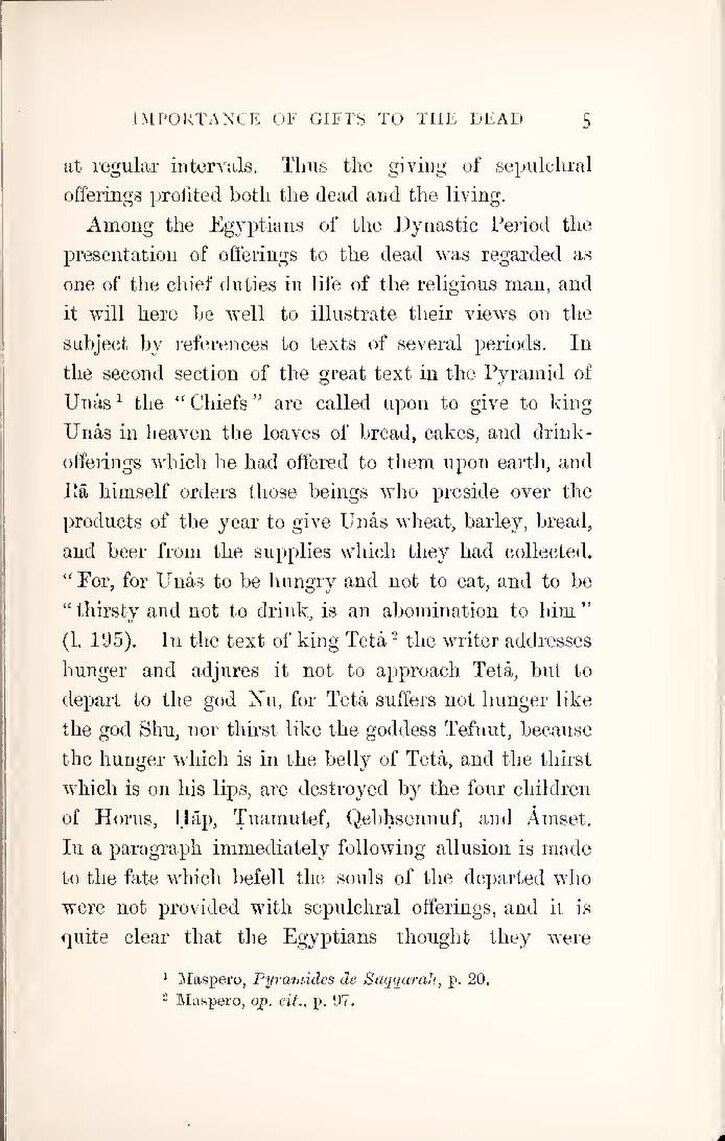at regular intervals. Thus the giving of sepulchral offerings profited both the dead and the living.
Among the Egyptians of the Dynastic Period the presentation of offerings to the dead was regarded as one of the chief duties in life of the religious man, and it will here be well to illustrate their views on the subject by references to texts of several periods. In the second section of the great text in the Pyramid of Unȧs[1] the “Chiefs” are called upon to give to king Unȧs in heaven the loaves of bread, cakes, and drink-offerings which he had offered to them upon earth, and Rā himself orders those beings who preside over the products of the year to give Unȧs wheat, barley, bread, and beer from the supplies which they had collected. “For, for Unȧs to be hungry and not to eat, and to be thirsty and not to drink, is an abomination to him” (l. 195). In the text of king Tetȧ[2] the writer addresses hunger and adjures it not to approach Tetȧ, but to depart to the god Nu, for Tetȧ suffers not hunger like the god Shu, nor thirst like the goddess Tefnut, because the hunger which is in the belly of Tetȧ, and the thirst which is on his lips, are destroyed by the four children of Horus, Ḥāp, Ṭuamutef, Qebḥsennuf, and Ȧmset. In a paragraph immediately following allusion is made to the fate which befell the souls of the departed who were not provided with sepulchral offerings, and it is quite clear that the Egyptians thought they were
